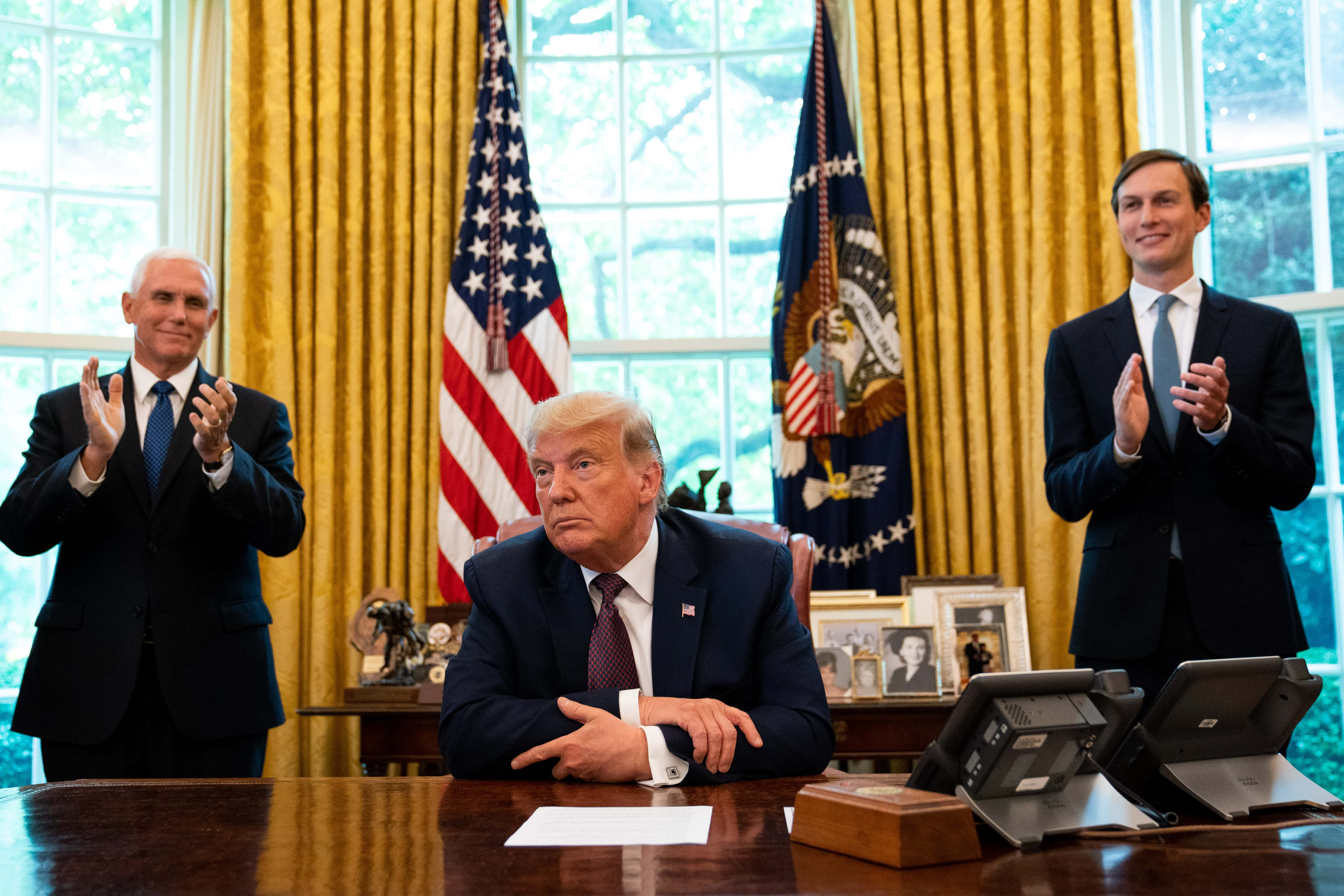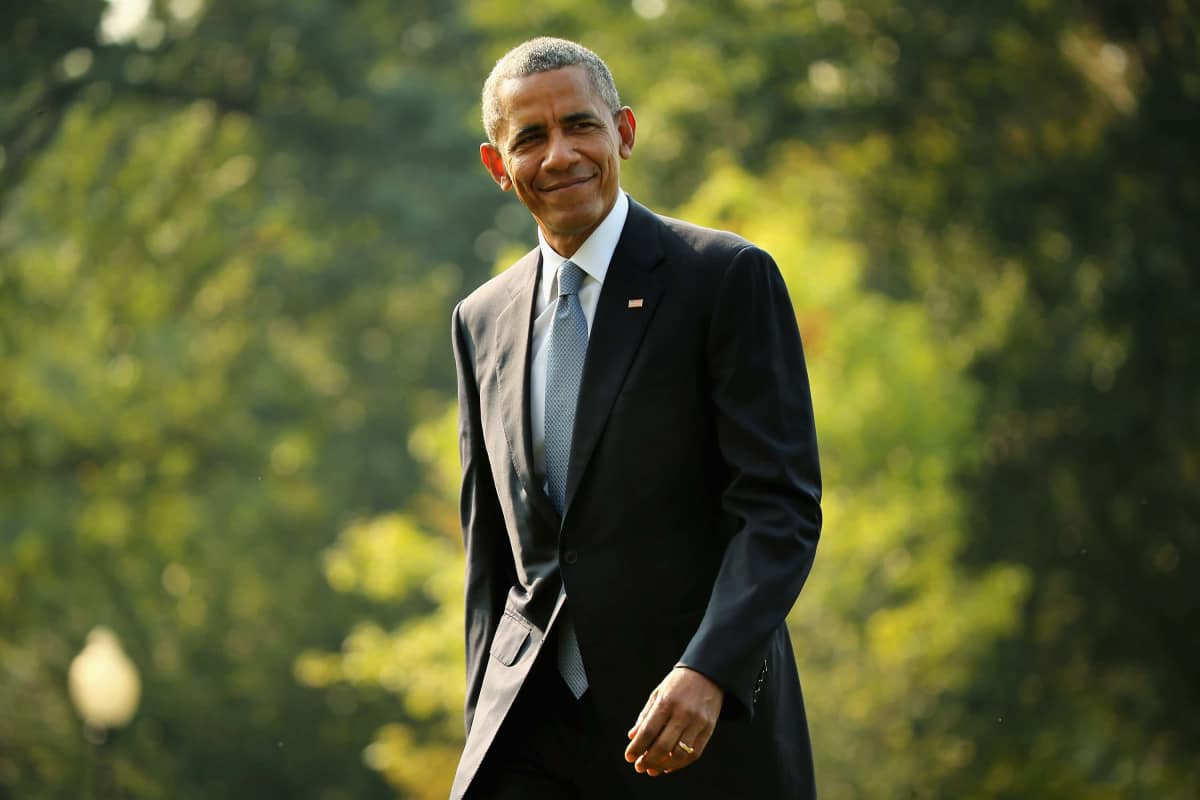Will Donald Trump get a Nobel Peace Prize? Estonia politician nominates ex-POTUS for not starting 'any war'

It is not something new but yet it is baffling for many. Former President Donald Trump has been nominated yet again for the Nobel Peace Prize and this time, the Republican leader has been picked by an Estonian politician for not starting 'any war' during his time in office as President of the United States.
Jaak Madison, deputy chairman of the Baltic nation’s right-wing Conservative People’s Party of Estonia or EKRE, claimed that he nominated Trump for contributing towards stability in the Middle East.
Madison, also a Member of the European Parliament, announced on Facebook while citing the former president’s nomination application: “Donald Trump is the first president of the United States in the last 30 years, whose office the country has not started any war. In addition, several peace agreements have been made under his leadership in the Middle East, which has helped ensure stability in the region and peace.”

Madison, whose Facebook post said he submitted the nomination “exactly two hours” before the deadline ended, also said that he was “definitely not the only one” who nominated Trump for the prestigious prize. He also said: “But as we know: the more applicants, the more likely success is.”
RELATED ARTICLES
Trump gets Nobel Peace Prize nomination after Israel-UAE peace deal: 'That is a very important region'
Trump declares victory against ISIS in Syria, orders more than 2,000 US troops to pull out immediately
Will Jared Kushner get a Nobel Peace Prize? Internet slams nomination saying he 'learned from the sleazy best'
Trump got several Nobel Prize nominations last year
In September 2020, far-right Norwegian lawmaker Christian Tybring-Gjedde nominated Trump, who was serving as the incumbent then, for the 2021 Nobel Peace Prize for the “historic peace agreement” between Israel and the United Arab Emirates (UAE).
Swedish parliamentarian and a member of the Christian Democrats, Magnus Jacobsson, Australian law professor David Flint (he called Trump’s foreign policy philosophy as the Trump Doctrine) and Finland’s Laura Huhtasaari, a European Parliament representative and a member of the far-right Finns Party also nominated Trump for the same around the same time.
Trump had vowed to end America's endless wars abroad when in office even though his decisions were not always in sync with that. While he chose to increase US troops in Afghanistan in 2017, he pulled out soldiers from northern Syria in the latter part of 2019, creating an uproar as his critics at home and abroad accused him of dumping allies like the Kurds to the mercy of regional powers like Turkey and Islamic State.
Trump, during his presidency, took initiatives to see Arab nations like Bahrain and the UAE normalizing relations with Israel and they gave his image a boost in the eyes of peace advocates.
If Trump wins the Nobel Peace Prize, he will be the fifth American president to get the award. Theodore Roosevelt (1906), Woodrow Wilson (1919), Jimmy Carter (2002) and Barack Obama (2009) are the other four recipients. Trump could also be the second to get it after his tenure following Carter who served between 1977 and 1981.
Trump’s immediate predecessor Obama got the prize for his “extraordinary efforts to strengthen international diplomacy and cooperation between people” and he received it just nine months into his first term.

The ERKE party created a controversy towards the end of last year when Estonia’s former interior minister Mart Helme made negative remarks about US President Joe Biden (he resigned as a result) and questioned the integrity of American elections.
Jared Kushner also gets Nobel nomination
Meanwhile, Trump’s former presidential advisor Jared Kushner was also nominated for the Nobel Peace Prize for his contribution towards facilitating the historic agreements between Israel and the Arab League nations. Kushner, who is Trump’s son-in-law, and his aide Avi Berkowitz, were nominated by Jeffrey Einstein's lawyer Alan Dershowitz on Monday, February 1, just hours before the deadline.
Kushner and Berkowitz played key roles in negotiating deals between Israel and the UAE, Bahrain, Sudan and Morocco. Before them, Egypt and Jordan were the only Arab League nations to recognize Israel. With the UAE and Bahrain recognizing Israel as a state and establishing formal diplomatic ties, Israel decided to delay its plan to annex part of the occupied West Bank.










